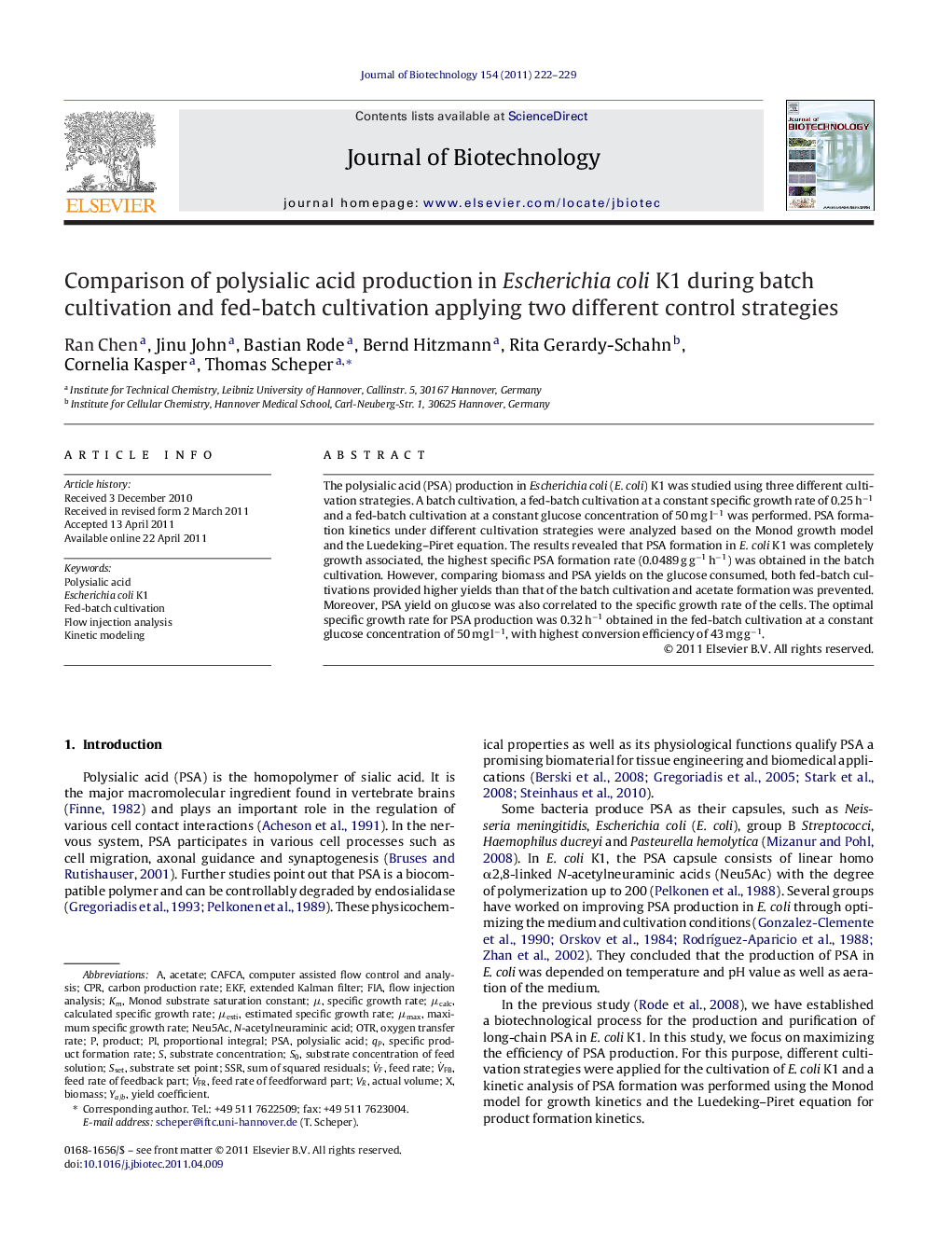| Article ID | Journal | Published Year | Pages | File Type |
|---|---|---|---|---|
| 24019 | Journal of Biotechnology | 2011 | 8 Pages |
The polysialic acid (PSA) production in Escherichia coli (E. coli) K1 was studied using three different cultivation strategies. A batch cultivation, a fed-batch cultivation at a constant specific growth rate of 0.25 h−1 and a fed-batch cultivation at a constant glucose concentration of 50 mg l−1 was performed. PSA formation kinetics under different cultivation strategies were analyzed based on the Monod growth model and the Luedeking–Piret equation. The results revealed that PSA formation in E. coli K1 was completely growth associated, the highest specific PSA formation rate (0.0489 g g−1 h−1) was obtained in the batch cultivation. However, comparing biomass and PSA yields on the glucose consumed, both fed-batch cultivations provided higher yields than that of the batch cultivation and acetate formation was prevented. Moreover, PSA yield on glucose was also correlated to the specific growth rate of the cells. The optimal specific growth rate for PSA production was 0.32 h−1 obtained in the fed-batch cultivation at a constant glucose concentration of 50 mg l−1, with highest conversion efficiency of 43 mg g−1.
